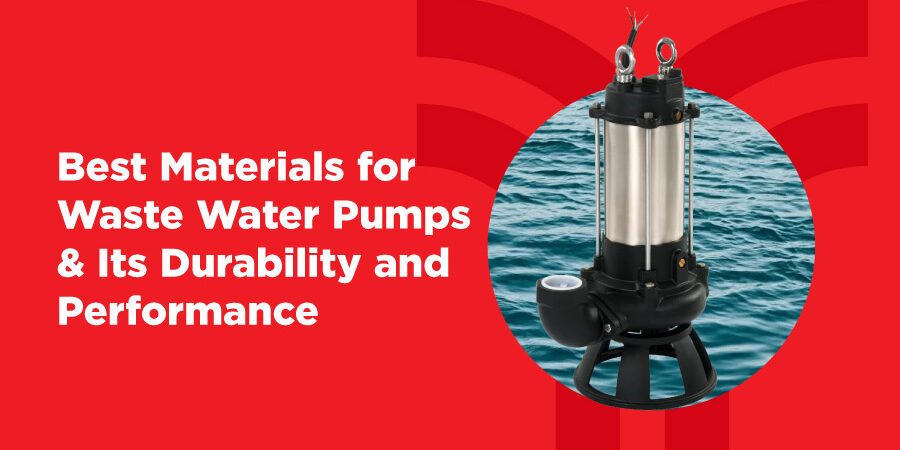Best Materials for Waste Water Pumps & Its Durability and Performance
Introduction
Selecting the right materials for waste water pumps is crucial to ensure optimal durability and performance. This blog delves into the materials commonly used in submersible sewage pumps and waste water pumps, offering insights into their advantages and potential drawbacks.
Common Materials Used in Waste Water Pumps
Cast Iron
Cast iron is a traditional choice for waste water pumps, known for its strength and durability. It handles high-pressure applications well but is susceptible to corrosion over time. Cast iron pumps are best suited for environments where abrasive materials are present.
Stainless Steel
Stainless steel is highly valued for its exceptional corrosion resistance, making it ideal for waste water pumps exposed to harsh chemicals or salty environments. Its longevity and low maintenance requirements make it a preferred material for many applications.
Bronze
Bronze offers a good balance between strength and corrosion resistance. It is particularly useful in marine environments or situations where pumps encounter both fresh and saltwater. However, it can be more expensive than other materials.
Thermoplastics
Thermoplastics are lightweight and resistant to a variety of chemicals, making them suitable for specific waste water applications. They are not as durable as metals but offer excellent performance in less demanding environments.
High Chrome White Iron
Known for its exceptional wear resistance, high chrome white iron is ideal for applications involving abrasive materials. Its durability in such conditions makes it a reliable choice for heavy-duty waste water pumps.
Durability and Performance of Different Materials
Cast Iron
Cast iron’s strength lies in its robustness, making it suitable for high-pressure tasks. However, its tendency to rust requires regular maintenance and protective coatings to prolong its lifespan.
Stainless Steel
The primary advantage of stainless steel is its resistance to rust and corrosion. It performs well in chemically aggressive environments and requires minimal maintenance, providing a long service life.
Bronze
Bronze pumps combine good strength and corrosion resistance, performing well in varied environments. Their higher cost can be a consideration, but their longevity often justifies the investment.
Thermoplastics
Thermoplastics excel in lightweight applications and environments with minimal mechanical stress. They are not as durable as metal options but provide good chemical resistance and ease of handling.
High Chrome White Iron
High chrome white iron’s wear resistance makes it unbeatable in abrasive settings. It ensures a long lifespan even in the most challenging conditions, although it might require higher initial investment.
Comparing Material Performance in Submersible Sewage Pumps
When choosing materials for submersible sewage pumps, consider factors such as the type of waste, chemical composition, and abrasive nature of the environment. Stainless steel and high chrome white iron are often preferred for their superior performance and durability.
Maintenance and Lifespan Considerations
Routine maintenance is key to extending the lifespan of waste water pumps. Material choice impacts the frequency and type of maintenance required. For instance, stainless steel requires less frequent checks than cast iron, which needs regular inspections for rust.
Conclusion
In summary, selecting the right material for waste water pumps involves balancing cost, durability, and application-specific requirements. Stainless steel and high chrome white iron offer excellent performance in harsh environments, while cast iron, bronze, and thermoplastics serve specific needs effectively. Choose wisely to ensure longevity and efficiency in your waste water management systems.


